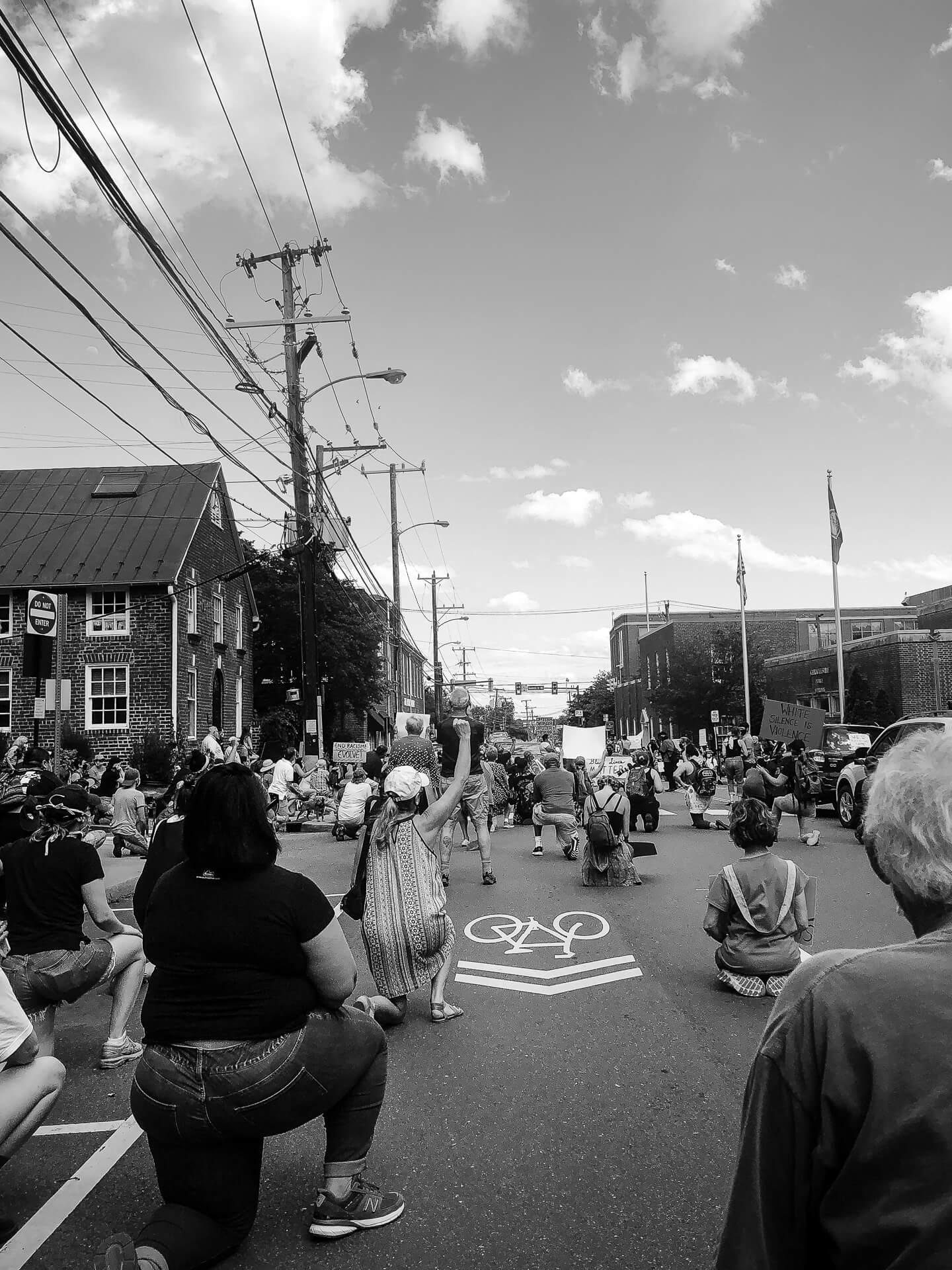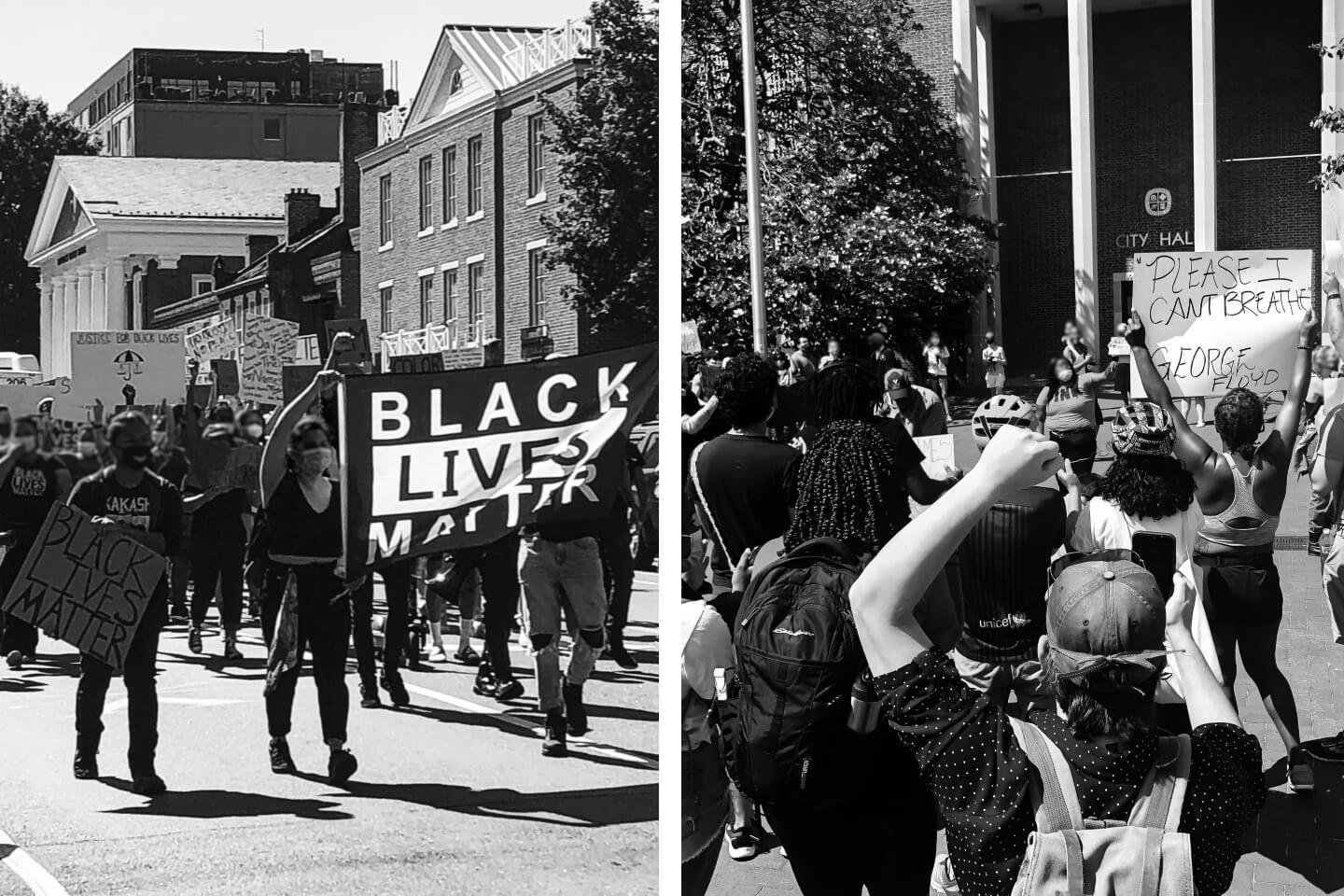I’ve struggled with how to best honor George Floyd in this space. I would never want to trivialize something so horrendous. After a lot of back and forth, I’ve decided that sharing a recipe is not the way to go today, so I’m sharing resources instead. I hope you find them helpful.

I’m furious about George Floyd’s murder. I dwell on him calling for his mother with his last breaths and feel a mix of outrage and a sadness that churns way down in my core. I think of all the Black folks who bear this same profound sadness while also wondering, will my brother be next? Will my nephew, my uncle, my father, my cousin, my aunt? Will I? I don’t know how to stare these impossible questions down without also being determined to take concrete action to end police violence.
And I want to be clear here that the issue is police violence. Black and Brown communities are subject to disproportionate policing all over the country. Black folks are more likely to be stopped, detained, and prosecuted. When convicted, Black folks receive longer sentences.
I’m glad so many have removed their blinders in the past weeks and opened their eyes to the inequality that affects our communities at every level. Whether we white folks are beginning a journey of understanding or in the middle of a lifetime of it, there is work to do in unlearning old ways of thinking and habits that permeate white culture. Sitting with our discomfort is a fine place to start, but is doesn’t do much to create real change on the ground. If we’re not willing to upset the structures of power, we’re not fighting for change.

To enact real change, and if white folks like me are really going to listen, we must get involved with what’s happening in our communities. Take to the streets! Listen to Black activists and follow their lead. Engage with local government. There’s a huge learning curve – it’s opaque by design – but it’s there. You can listen and observe and find ways to help with the priorities Black folks are laying out. If white folks are remotely serious about all this, we have to stand up and speak out!
Creating meaningful change isn’t easy. We need massive change at every level of policing. We have to reimagine community values and shift from accepting everyday violence to creating communities that care for each other. Are you in? I really hope so.
Most weeks, I come here to share a recipe. Today, it just doesn’t feel right, so I’ll share resources instead.
- In Minnesota, Black Visions Collective has been working toward a more just Minneapolis since 2017.
- Looking to better understand what folks mean when they discuss defunding police or prison abolition? Listen to this two-part Intercepted podcast featuring geographer and abolitionist Ruth Wilson Gilmore in conversation with Chenjerai Kumanyika.
- Get involved with mutual aid – rebuilding our communities means connecting with our neighbors and creating support structures outside of policing. Learn the principles of mutual aid based on the model of solidarity, not charity.
- Ask questions of your local government. How much does your community spend on policing? How does that compare to other expenditures? Are there cops in schools? What kinds of equipment is your police force investing in? Who and what neighborhoods are policed disproportionately?
- Incarcerated folks are in grave danger right now as COVID-19 spreads through prisons and jails. Ask local officials for statistics. Are folks being released? How many? Who?
Thank you